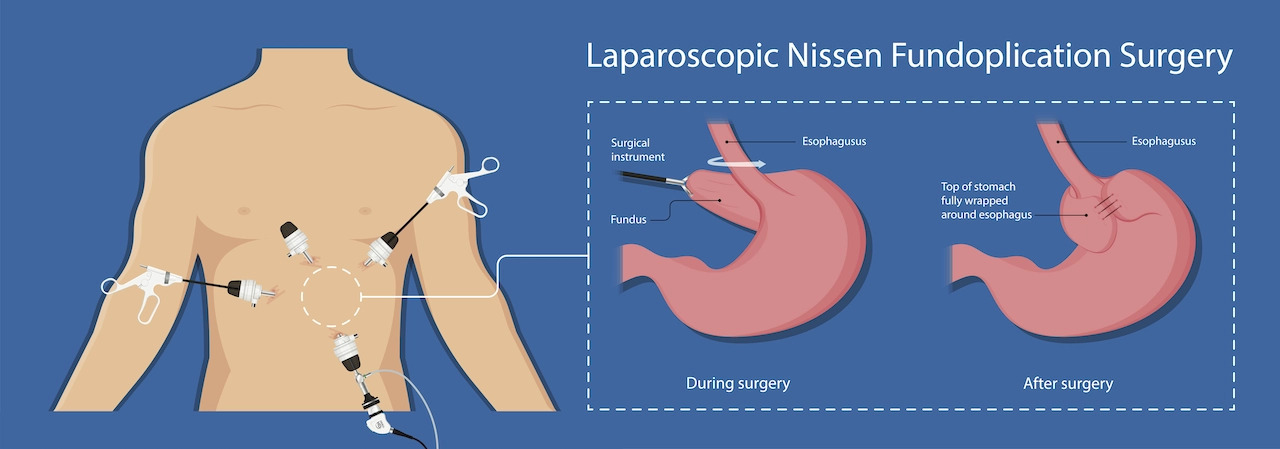


Gastroesophageal Reflux Disease (GORD), also known as chronic acid reflux, refers to the upward movement of stomach acid into the oesophagus. This condition typically arises due to a defect or weakness in the Lower Oesophageal Sphincter (LOS), a circular muscle acting as a valve between the oesophagus and stomach contents.
Occasional acid reflux is common; however, when it occurs several times a week for months, it is classified as GORD.
The sensitive lining of the oesophagus is easily irritated by stomach acid, causing a range of symptoms :
In some cases, symptoms may be absent, known as silent GORD. Regardless of symptom severity, the damage caused by stomach acid can lead to Barrett’s Oesophagus—a pre-cancerous condition marked by cellular changes in the oesophageal lining. The increasing incidence of oesophageal cancer has been linked to the rise in chronic acid reflux, often associated with obesity.
Hiatal hernias occur when part of the stomach pushes through the diaphragm into the chest. These hernias are a common cause of GORD, especially in patients with obesity. Hiatal hernias are often detected during preoperative testing for weight-loss surgeries or during the procedures themselves. In many cases, the hernia is repaired concurrently with bariatric surgery.
Hiatus hernias are typically diagnosed using the following methods :
When lifestyle modifications and medications are insufficient or undesirable for long-term management, surgery becomes an option.
(1) The stomach is brought back into its normal position.
(2) The top portion of the stomach is wrapped around the lower oesophagus and sutured, creating pressure to keep the LOS closed and prevent acid reflux.
(3) The diaphragm’s opening (hiatus) is repaired if a hiatal hernia is present.
Variations of fundoplication include :
Recovery typically involves a puréed diet for several weeks due to postoperative swelling, after which normal eating resumes.
GORD is a manageable condition with proper treatment and lifestyle adjustments. Early intervention is crucial to prevent long-term complications.
If you suspect you have symptoms of GORD, we encourage you to schedule an appointment. Mr Parmar will provide a comprehensive evaluation and discuss the most suitable treatment options for your condition.